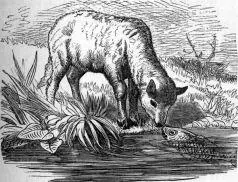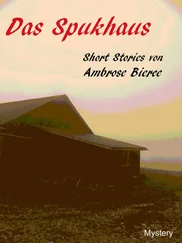Ambrose Bierce - Cobwebs from an Empty Skull
Здесь есть возможность читать онлайн «Ambrose Bierce - Cobwebs from an Empty Skull» весь текст электронной книги совершенно бесплатно (целиком полную версию без сокращений). В некоторых случаях можно слушать аудио, скачать через торрент в формате fb2 и присутствует краткое содержание. Жанр: Юмористическая проза, Классическая проза, на английском языке. Описание произведения, (предисловие) а так же отзывы посетителей доступны на портале библиотеки ЛибКат.
- Название:Cobwebs from an Empty Skull
- Автор:
- Жанр:
- Год:неизвестен
- ISBN:нет данных
- Рейтинг книги:4 / 5. Голосов: 1
-
Избранное:Добавить в избранное
- Отзывы:
-
Ваша оценка:
- 80
- 1
- 2
- 3
- 4
- 5
Cobwebs from an Empty Skull: краткое содержание, описание и аннотация
Предлагаем к чтению аннотацию, описание, краткое содержание или предисловие (зависит от того, что написал сам автор книги «Cobwebs from an Empty Skull»). Если вы не нашли необходимую информацию о книге — напишите в комментариях, мы постараемся отыскать её.
Cobwebs from an Empty Skull — читать онлайн бесплатно полную книгу (весь текст) целиком
Ниже представлен текст книги, разбитый по страницам. Система сохранения места последней прочитанной страницы, позволяет с удобством читать онлайн бесплатно книгу «Cobwebs from an Empty Skull», без необходимости каждый раз заново искать на чём Вы остановились. Поставьте закладку, и сможете в любой момент перейти на страницу, на которой закончили чтение.
Интервал:
Закладка:
The exquisite fancies of a remote age may not be imitated in this; not, perhaps, from a lack of talent, so much as from a fear of arrest.
LXXVIII.
A rat, finding a file, smelt it all over, bit it gently, and observed that, as it did not seem to be rich enough to produce dyspepsia, he would venture to make a meal of it. So he gnawed it into smithareens [D] [D] I confess my inability to translate this word: it may mean "flinders."-TRANSLATOR.
without the slightest injury to his teeth. With his morals the case was somewhat different. For the file was a file of newspapers, and his system became so saturated with the "spirit of the Press" that he went off and called his aged father a "lingering contemporary;" advised the correction of brief tails by amputation; lauded the skill of a quack rodentist for money; and, upon what would otherwise have been his death-bed, essayed a lie of such phenomenal magnitude that it stuck in his throat, and prevented him breathing his last. All this crime, and misery, and other nonsense, because he was too lazy to worry about and find a file of nutritious fables.
This tale shows the folly of eating everything you happen to fancy. Consider, moreover, the danger of such a course to your neighbour's wife.
LXXIX.
"I should like to climb up you, if you don't mind," cried an ivy to a young oak.
"Oh, certainly; come along," was the cheerful assent.
So she started up, and finding she could grow faster than he, she wound round and round him until she had passed up all the line she had. The oak, however, continued to grow, and as she could not disengage her coils, she was just lifted out by the root. So that ends the oak-and-ivy business, and removes a powerful temptation from the path of the young writer.
LXXX.
A merchant of Cairo gave a grand feast. In the midst of the revelry, the great doors of the dining-hall were pushed open from the outside, and the guests were surprised and grieved by the advent of a crocodile of a tun's girth, and as long as the moral law.
"Thought I'd look in," said he, simply, but not without a certain grave dignity.
"But," cried the host, from the top of the table, "I did not invite any saurians."
"No-I know yer didn't; it's the old thing, it is: never no wacancies for saurians-saurians should orter keep theirselves to theirselves-no saurians need apply. I got it all by 'eart, I tell yer. But don't give yerself no distress; I didn't come to beg; thank 'eaven I ain't drove to that yet-leastwise I ain't done it. But I thought as 'ow yer'd need a dish to throw slops and broken wittles in it; which I fetched along this 'ere."
And the willing creature lifted off the cover by erecting the upper half of his head till the snout of him smote the ceiling.
Open servitude is better than covert begging.
LXXXI.
A gander being annoyed by the assiduous attendance of his ugly reflection in the water, determined that he would prosecute future voyages in a less susceptible element. So he essayed a sail upon the placid bosom of a clay-bank. This kind of navigation did not meet his expectations, however, and he returned with dogged despair to his pond, resolved to make a final cruise and go out of commission. He was delighted to find that the clay adhering to his hull so defiled the water that it gave back no image of him. After that, whenever he left port, he was careful to be well clayed along the water-line.
The lesson of this is that if all geese are alike, we can banish unpleasant reflections by befouling ourselves. This is worth knowing.
LXXXII.
The belly and the members of the human body were in a riot. (This is not the riot recorded by an inferior writer, but a more notable and authentic one.) After exhausting the well-known arguments, they had recourse to the appropriate threat, when the man to whom they belonged thought it time for him to be heard, in his capacity as a unit.
"Deuce take you!" he roared. "Things have come to a pretty pass if a fellow cannot walk out of a fine morning without alarming the town by a disgraceful squabble between his component parts! I am reasonably impartial, I hope, but man's devotion is due to his deity: I espouse the cause of my belly."
Hearing this, the members were thrown into so extraordinary confusion that the man was arrested for a windmill.
As a rule, don't "take sides." Sides of bacon, however, may be temperately acquired.
LXXXIII.
A man dropping from a balloon struck against a soaring eagle.
"I beg your pardon," said he, continuing his descent; "I never could keep off eagles when in my descending node."
"It is agreeable to meet so pleasing a gentleman, even without previous appointment," said the bird, looking admiringly down upon the lessening aeronaut; "he is the very pink of politeness. How extremely nice his liver must be. I will follow him down and arrange his simple obsequies."
This fable is narrated for its intrinsic worth.
LXXXIV.
To escape from a peasant who had come suddenly upon him, an opossum adopted his favourite expedient of counterfeiting death.
"I suppose," said the peasant, "that ninety-nine men in a hundred would go away and leave this poor creature's body to the beasts of prey." [It is notorious that man is the only living thing that will eat the animal.] "But I will give him good burial."
So he dug a hole, and was about tumbling him into it, when a solemn voice appeared to emanate from the corpse: "Let the dead bury their dead!"
"Whatever spirit hath wrought this miracle," cried the peasant, dropping upon his knees, "let him but add the trifling explanation of how the dead can perform this or any similar rite, and I am obedience itself. Otherwise, in goes Mr. 'Possum by these hands."
"Ah!" meditated the unhappy beast, "I have performed one miracle, but I can't keep it up all day, you know. The explanation demanded is a trifle too heavy for even the ponderous ingenuity of a marsupial."
And he permitted himself to be sodded over.
If the reader knows what lesson is conveyed by this narrative, he knows-just what the writer knows.
LXXXV.
Three animals on board a sinking ship prepared to take to the water. It was agreed among them that the bear should be lowered alongside; the mouse (who was to act as pilot) should embark upon him at once, to beat off the drowning sailors; and the monkey should follow, with provisions for the expedition-which arrangement was successfully carried out. The fourth day out from the wreck, the bear began to propound a series of leading questions concerning dinner; when it appeared that the monkey had provided but a single nut.
"I thought this would keep me awhile," he explained, "and you could eat the pilot."
Hearing this, the mouse vanished like a flash into the bear's ear, and fearing the hungry beast would then demand the nut, the monkey hastily devoured it. Not being in a position to insist upon his rights, the bear merely gobbled up the monkey.
LXXXVI.

A lamb suffering from thirst went to a brook to drink. Putting his nose to the water, he was interested to feel it bitten by a fish. Not liking fish, he drew back and sought another place; but his persecutor getting there before him administered the same rebuff. The lamb being rather persevering, and the fish having no appointments for that day, this was repeated a few thousand times, when the former felt justified in swearing:
Читать дальшеИнтервал:
Закладка:
Похожие книги на «Cobwebs from an Empty Skull»
Представляем Вашему вниманию похожие книги на «Cobwebs from an Empty Skull» списком для выбора. Мы отобрали схожую по названию и смыслу литературу в надежде предоставить читателям больше вариантов отыскать новые, интересные, ещё непрочитанные произведения.
Обсуждение, отзывы о книге «Cobwebs from an Empty Skull» и просто собственные мнения читателей. Оставьте ваши комментарии, напишите, что Вы думаете о произведении, его смысле или главных героях. Укажите что конкретно понравилось, а что нет, и почему Вы так считаете.





